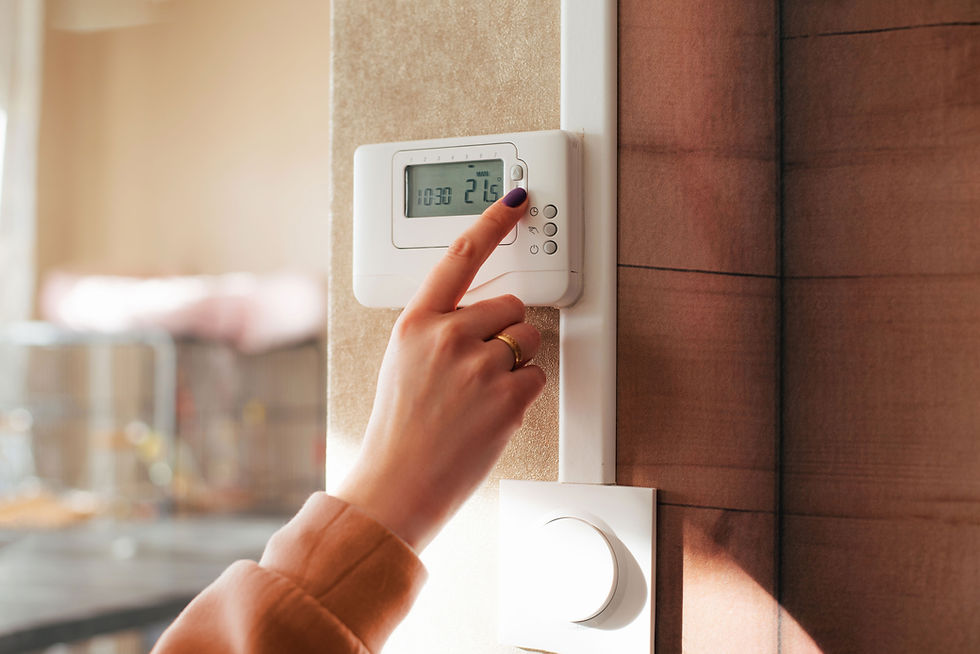Troubleshooting Guide: Why Is My HVAC System Not Heating/Cooling Properly?
- Will Mayo
- Apr 6, 2024
- 2 min read

Few things are more frustrating than turning on your HVAC system expecting a comfortable temperature, only to find that it's not heating or cooling your home as expected. If you're experiencing this issue, you're not alone. Understanding the potential causes behind your HVAC system's inability to maintain the desired temperature is the first step towards resolving the problem. In this blog post, we'll explore some common reasons why your HVAC system might not be heating or cooling properly and provide helpful troubleshooting tips to get your home's climate back on track.
1. Dirty Air Filters: One of the most common culprits behind poor HVAC performance is dirty air filters. Over time, air filters can become clogged with dust, dirt, and debris, restricting airflow and reducing the system's efficiency. Check your air filters and replace them if they appear dirty or clogged to improve airflow and restore proper heating or cooling.
2. Thermostat Issues: A malfunctioning thermostat can also cause your HVAC system to behave erratically. Check the thermostat settings to ensure they are correctly configured for heating or cooling mode, and consider replacing the batteries if necessary. If you have a programmable thermostat, verify that the schedule is set correctly and that the temperature settings align with your preferences.
3. Blocked Vents or Registers: Blocked or closed vents and registers can restrict airflow and prevent proper distribution of heated or cooled air throughout your home. Ensure that all vents and registers are open and unobstructed by furniture, curtains, or other objects. Improving airflow can help maintain consistent temperatures in every room.
4. Refrigerant Leaks: If your HVAC system is struggling to cool your home adequately, it could be due to a refrigerant leak. Low refrigerant levels can impair the system's ability to remove heat from the air, resulting in reduced cooling performance. If you suspect a refrigerant leak, contact a qualified HVAC technician to inspect and repair the issue.
5. Dirty Coils or Components: Dirt, dust, and debris can accumulate on the evaporator coils, condenser coils, and other critical components of your HVAC system, hindering their ability to transfer heat effectively. Schedule regular maintenance visits to have your system professionally cleaned and inspected to ensure optimal performance.
6. Overworked System: An HVAC system that is too small for the size of your home or one that is overworked due to extreme weather conditions may struggle to maintain comfortable temperatures. Consider upgrading to a more efficient and appropriately sized system to better meet your heating and cooling needs.
Conclusion: When your HVAC system is not heating or cooling properly, identifying the underlying cause is essential for restoring comfort to your home. By addressing common issues such as dirty air filters, thermostat problems, blocked vents, refrigerant leaks, and dirty coils, you can improve your system's efficiency and performance. If you're unable to resolve the problem on your own, don't hesitate to contact a qualified HVAC technician for professional assistance. With proper maintenance and timely repairs, you can ensure that your HVAC system operates reliably and efficiently for years to come. #HVAC #CharlottesvilleHVAC #CharlottesvilleVA #HVACMaintenance




Comments